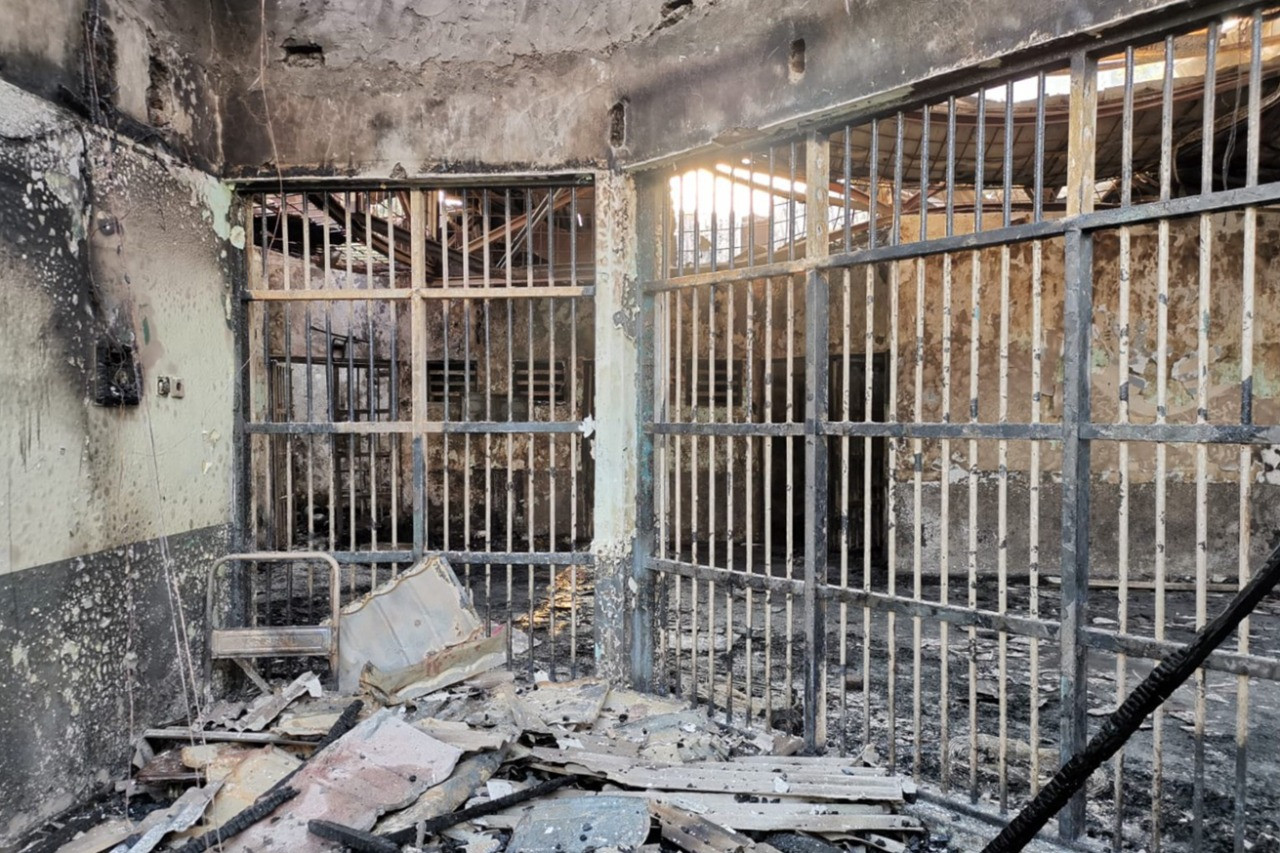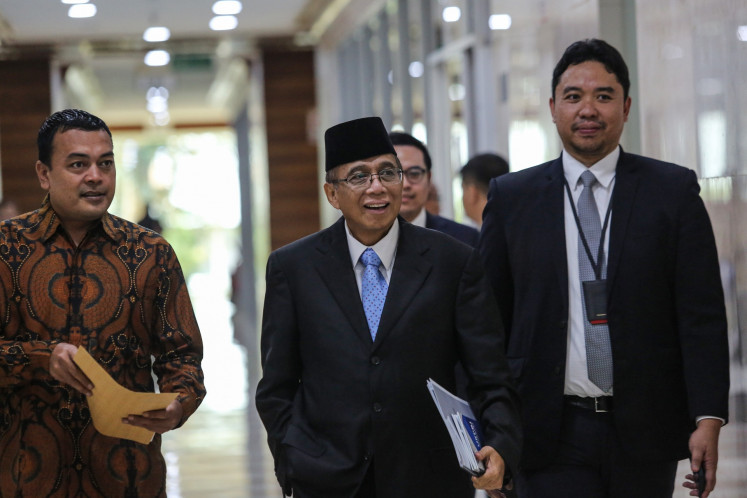Popular Reads
Top Results
Can't find what you're looking for?
View all search resultsPopular Reads
Top Results
Can't find what you're looking for?
View all search resultsActivists demand heads roll for Tangerang prison fire
A fire at the Tangerang Class 1 Penitentiary in Banten on Wednesday killed at least 44 inmates, sparking fresh calls for the government to take responsibility amid persisting overcrowding problems in the country's prison system.
Change text size
Gift Premium Articles
to Anyone
T
hree more inmates died on Thursday after having been treated at Tangerang Regional General Hospital (RSUD Tangerang) following a fire at the Tangerang Class 1 Penitentiary in Banten that had killed scores of drug inmates a day earlier, sparking fresh calls for accountability of the government.
The latest fatalities bring the total death toll of the tragic incident, suspected to have been caused by an “electrical short circuit” in one of the cell blocks at the facility, to 44 people, including two foreign nationals.
The incidents have called attention to overcrowding in Indonesian prisons, partly driven by the government’s tough stance on drug use, with activists calling on key officials to take responsibility and resign from their posts following the incident.
“It is appropriate for Law and Human Rights Minister [Yasonna H. Laoly] and Correction Center Director General [Reinhard Silitonga] to step down from their positions,” Amnesty International Indonesia executive director Usman Hamid said in a statement on Wednesday.
“This kind of incident should never happen again,” he added.
Yasonna’s tenure as the law and human rights minister, which started in 2014 after President Joko “Jokowi” Widodo appointed the Indonesian Democratic Party of Struggle (PDI-P) politician into the Cabinet during his first term, has been marred with multiple prison incidents.
In 2016, prison riots broke out at the Malabero state detention center in Bengkulu, which killed five prisoners. A year later, around 450 prisoners fled from the Sialang Bungkuk detention center in Pekanbaru, Riau, as a result of chronic overcrowding and understaffing at the facility.
Institute for Criminal Justice Reform (ICJR) executive director Erasmus Napitupulu called for a full investigation to determine the cause of the incident, while also demanding the government seriously address the overcrowding problems in Indonesia’s prison system.
“The overcrowding problem should be addressed. [Yasonna] has been the law and human rights minister for years but we have not seen any steps to resolve the overcrowding issues, despite repeated pledges from the ministry,” said Erasmus on Wednesday.
He went on to add that the government should also ensure that it provides full compensation for the relatives of the victims.
Minister Yasonna had issued a public apology over the incident and added that the government would provide Rp 30 million in compensation for the bereaved families.
Indonesia’s prison population has grown steadily over the years, from around 117,000 in 2010 to 256,000 in 2018, according to the World Prison Brief (WPB) online database, hosted by the Institute for Criminal Policy Research at the University of London.
As of August, the 526 prisons and detention centers across the country held 266,514 inmates, almost double the maximum capacity of 135,561 inmates, according to Law and Human Rights Ministry data.
The Tangerang prison housed more than 2,000 inmates in total, far above its 600 capacity, with around 90 percent of the inmates drug offenders.
Many activists blame Indonesia’s overcrowded prisons on the judicial system, the existing Criminal Code (KUHP), and the punitive attitudes of the judiciary, prosecutors and law enforcement officers, particularly when it comes to drug crimes.
The 2009 Narcotics Law permits judges to sentence drug users and victims of drug abuse to rehabilitation rather than imprisonment, but judges often refrain from imposing the alternative scheme. Meanwhile, activists say that police and prosecutors often mistakenly classify drug addicts as drug dealers or traffickers.
In the last three years, fires have broken out in 13 prisons, 10 of which were overcrowded, according to data compiled by the ICJR. Five fire incidents in detention centers and prisons were triggered by riots among the inmates.
The incident marked the second major fire-related incident in Tangerang after the 2017 firework factory blaze, which claimed the lives of 47 people. Meanwhile, a matchstick factory in North Sumatra was set ablaze in 2019, killing 30 people.










